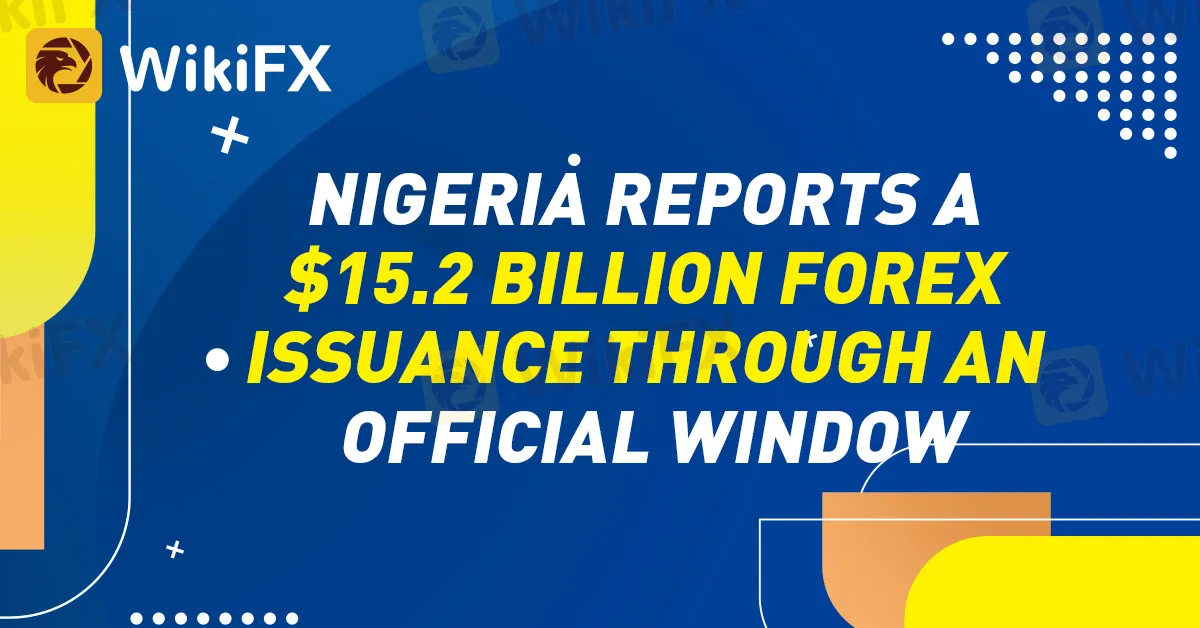简体中文
繁體中文
English
Pусский
日本語
ภาษาไทย
Tiếng Việt
Bahasa Indonesia
Español
हिन्दी
Filippiiniläinen
Français
Deutsch
Português
Türkçe
한국어
العربية
NIGERIA REPORTS A $15.2 BILLION FOREX ISSUANCE THROUGH AN OFFICIAL WINDOW.
Abstract:The foreign currency through the official window climbed to $15.2 billion in 2022, up 46.4% from 2020 and 17.7% from 2021.

The foreign currency through the official window climbed to $15.2 billion in 2022, up 46.4% from 2020 and 17.7% from 2021.
The Investors and Exporters (I&E) window, which supplied all of the FX in the official window, was the main cause of the increase.
The Bureau De Change (BDC) market's shortage, including the naira's depreciation and a shortage of FX .
According to figures from the Central Bank of Nigeria (CBN), Nigeria's FX supply through the official window grew to $15.2 billion in 2022.
This is an increase of 46.4% from the $10.4 billion in 2020 and a 17.7% rise from the $12.9 billion in 2021.
The wholesale and retail Dutch auction systems, the interbank market, the bureau de change (BDC) market, the investors and exporters (I&E), the small and medium enterprises (SME) and invisibles divisions, are all included in the official window.
Following is a breakdown of the FX supply through the official window in 2022:
In February 2015, the CBN discontinued this segment, and the WDAS/RDAS recorded nil supply.
Since the CBN combined the Interbank market with the I&E window in August 2017, there was no supply.
Since the CBN ceased selling FX to BDC operators in July 2021 due to abuse, BDC market had no supply.
100% of the total currency supply through the official window, or $15.3 billion, was registered in the I&E window. This is an increase of 54.8% from the $9.9 billion in 2020 and a 5.6% rise from the $14.5 billion in 2021.
NEGATIVE EFFECTS FOR BDC OPERATORS OF ZERO SUPPLY
The shortage of currency availability from the BDC market was one of the elements that led to the devaluation of the naira in 2022. A section of the official window called the BDC market is where authorized operators buy and sell FX to retail consumers at a profit.
For many Nigerians, the BDC market serves as a source of income and frequently provides liquidity to the currency market. But in July 2021, the CBN stopped giving foreign currency to BDC owners after accusing them of indulging in stockpiling, speculation, and money laundering.
According to the CBN, BDC providers overcharge and exploit their customers. With no supply on the BDC market in 2022, the I&E window became the only source of foreign exchange.
WHAT YOU MUST UNDERSTAND
A section of the official window known as the I&E window is where authorized dealers and purchasers can transact in foreign exchange at rates set by the market. The CBN launched the I&E window in April 2017 to increase market liquidity and transparency. It makes it possible for exporters and international investors to buy and sell currency at rates set by the market.
The I&E window had a $15.3 billion supply in 2022, but this was insufficient to fulfill high need for FX. As a result, there was a shortage of foreign exchange, which exerted pressure on the naira and caused it to weaken by 9.4% against the dollar in 2022.
There are a number of reasons why there will be more FX available through the official window in 2022, including:
Nigeria's foreign reserves and export revenues prices and output increased.
The CBN's implementation of the Naira for Dollar program encouraged remittance inflows from Nigerians living abroad.
Exchange rates were synchronized by the CBN's deployment of the Nigerian Autonomous Foreign Exchange Rate Fixing (NAFEX) mechanism.
Trade made easier by the restoration of international borders and airports.
The CBN will continue to intervene to strengthen the naira in 2023, therefore the official window would either remain unchanged or grow even more.

Disclaimer:
The views in this article only represent the author's personal views, and do not constitute investment advice on this platform. This platform does not guarantee the accuracy, completeness and timeliness of the information in the article, and will not be liable for any loss caused by the use of or reliance on the information in the article.
Read more

RM570,000 Lost in a Gold Trading Scam in Malaysia
In a distressing case of financial deception, a retired female teacher in Malaysia lost RM570,000 of her personal savings and pension to a gold trading investment scheme.

Many Social Media 'Investment Gurus' Are Scammers Preying on Malaysian Traders
Social media platforms have become breeding grounds for scammers posing as investment gurus, exploiting the growing interest in forex and cryptocurrency trading among Malaysians. Fraudulent "financial experts" often create the illusion of legitimacy by offering enticing stock analyses and promises of high returns.

Arumpro Capital Ltd Faces Regulatory Setbacks as CySEC Withdraws CIF Licence
The Cyprus Securities and Exchange Commission (CySEC) has officially withdrawn the Cyprus Investment Firm (CIF) licence of Arumpro Capital Ltd. The decision was finalised during a CySEC meeting on 11 November 2024, marking another chapter in the firm's ongoing regulatory challenges.

Webull Expands Trading Services to Japan via TradingView
Webull launches in Japan, offering low-cost trading for U.S. and Japanese securities via TradingView. Start trading with investments as low as $5.
WikiFX Broker
Latest News
Tokyo Police Arrest 4 for Unregistered FX Trading Scheme
BSP Shuts Down Uno Forex Over Serious AML Violations
ACY Securities Expands Global Footprint with South Africa Acquisition
Rupee gains against Euro
WikiEXPO Global Expert Interview: The Future of Financial Regulation and Compliance
DFSA Warns of Fake Loan Approval Scam Using Its Logo
Consob Sounds Alarm: WhatsApp & Telegram Users Vulnerable to Investment Scams
CySEC Revokes UFX Broker Licence as Reliantco Halts Global Operations
GCash, Government to Launch GBonds for Easy Investments
Bitcoin ETF Options Get Closer to Reality with CFTC Clarification
Currency Calculator



